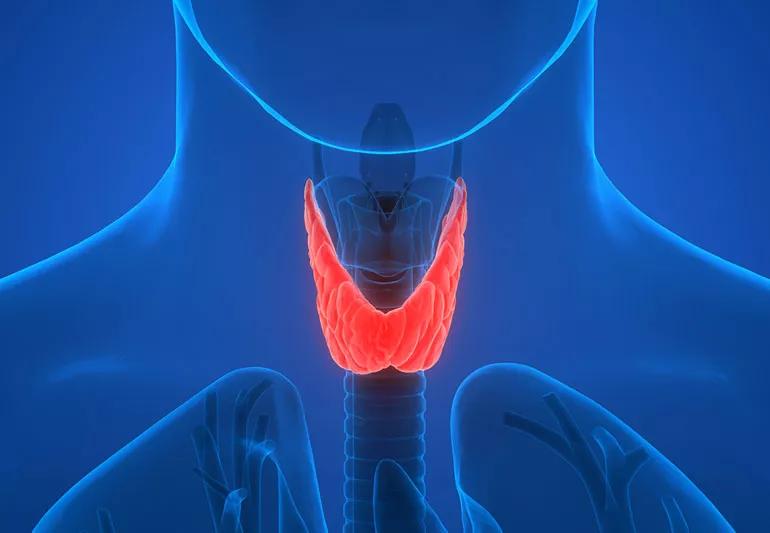How overtreatment for hypothyroidism places you at risk

There’s nothing better than feeling like your healthy, usual self after taking medication for your hypothyroidism. However, if you start noticing symptoms like anxiety, fuzzy memory, diarrhea, heart palpitations or excessive sweating, this may be a sign that your underactive thyroid is being overtreated.
Advertisement
Cleveland Clinic is a non-profit academic medical center. Advertising on our site helps support our mission. We do not endorse non-Cleveland Clinic products or services. Policy
If your thyroid gland is underactive — a condition called hypothyroidism — your body produces too little thyroid hormone. This can make you gain weight, feel depressed, fatigued and sensitive to cold temperatures.
But what exactly causes hypothyroidism? Anything from radiation treatment to autoimmune disease to different types of medication can cause your underactive thyroid. Family history is another factor that your doctor will look at to determine thyroid disease.
Your endocrinologist can make sure that you have enough thyroid hormone in your body by prescribing synthetic thyroid hormone T4. T4 works by replacing the thyroid hormone that’s missing. They may also prescribe a medication containing both T4 and T3, another thyroid hormone.
“To feel your best, you need the right amount of replacement thyroid hormone in your system,” stresses endocrinologist Mario Skugor, MD.
Your dose of thyroid hormone is based on your weight, although your doctor has to keep an eye on your blood levels because some people have problems with absorption.
“Be sure to report a weight gain or loss of 10% or more to your doctor right away,” advises Dr. Skugor. “This will help you avoid overtreatment or undertreatment.”
Advertisement
At the onset of menopause, it’s frequently necessary to decrease the thyroid dose to avoid overtreatment.
Yet even when you’re on the right dose for your weight, you may be getting more thyroid hormone than your body needs. Overtreatment places you at risk of developing heart arrhythmias and osteoporosis, a low bone-mass disorder that leads to easy fracturing. One study even reported that overtreatment is associated with increased cardiovascular risk.
It’s important to keep your doctor in the loop of any other changes like starting new medication or feeling your symptoms return or get worse.
It’s important to be familiar with the signs of overtreatment for hypothyroidism. Symptoms of mild overtreatment include:
Symptoms of severe overtreatment include:
Two groups of people with hypothyroidism are at high risk of complications from overtreatment: those with heart rhythm disturbances (arrhythmias) and elderly people with weak bones. One study reports that hypothyroidism is more common in older women due to Hashimoto’s disease.
“Whether you’re young, old or in between, don’t adjust the dose yourself if you think you’re being overtreated,” says Dr. Skugor. “Call your doctor and explain your symptoms. They will check your blood levels of thyroid hormone. The correct dose adjustment will soon have you feeling a whole lot better.”
Advertisement
Learn more about our editorial process.
Advertisement

Hypothyroidism is underactivity of your thyroid gland, while hyperthyroidism is overactivity — but both conditions need treatment

No diet can cure hypothyroidism or hyperthyroidism, but some foods and supplements can cause trouble

Foods high in selenium, like Brazil nuts, cottage cheese and some fish, can help support healthy thyroid function

Only take supplements recommended by your healthcare provider — others can worsen your condition

Typical signs include growth delays and low energy

Hyperthyroidism can make you feel sluggish and exhausted — but so can other conditions

The truth about natural thyroid symptom relief

Wearing a scarf, adjusting your outdoor activities and following your asthma treatment plan can help limit breathing problems

Your diet in the weeks, days and hours ahead of your race can power you to the finish line

When someone guilt trips you, they’re using emotionally manipulative behavior to try to get you to act a certain way